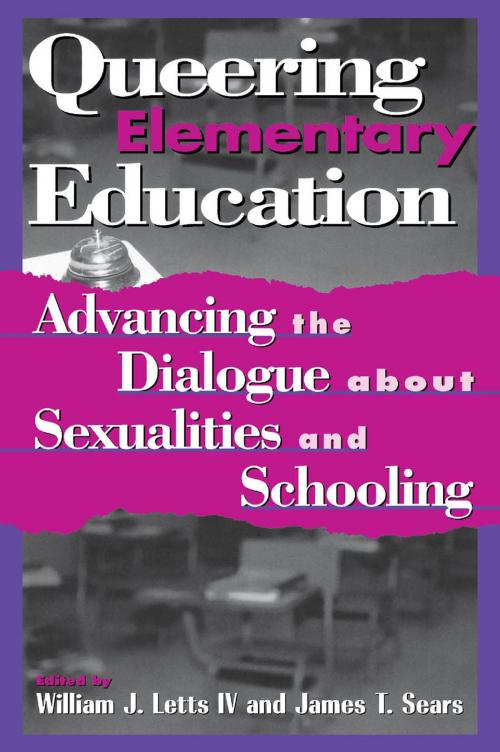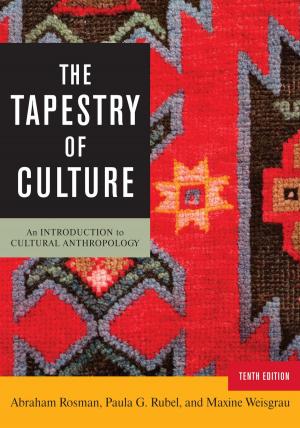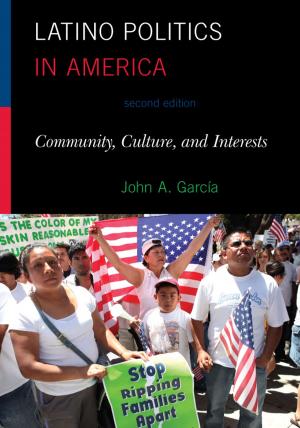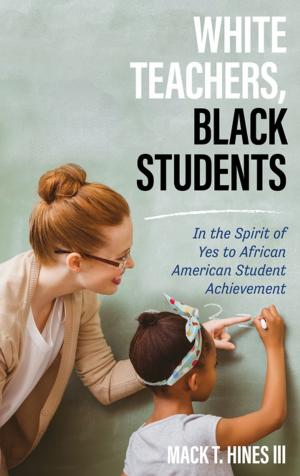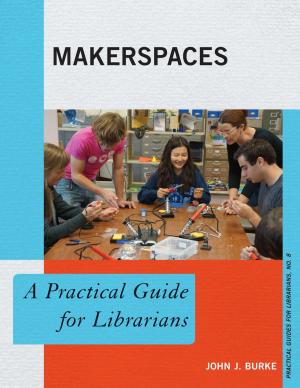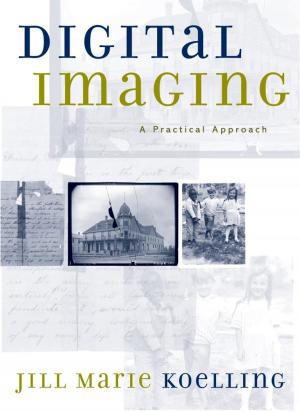Queering Elementary Education
Advancing the Dialogue about Sexualities and Schooling
Nonfiction, Reference & Language, Education & Teaching, Educational Theory, Multicultural Education| Author: | Kathy Bickmore, Perry Brass, Betsy Cahill, Kevin Colleary, Greg Curran, Barbara Danish, James Earl Davis, Kate Evans, Karen Glasgow, Pat Hulsebosch, Kevin Jennings, Gigi Kaeser, James R. King, Rita Kissen, Mari E. Koerner, Kevin K. Kumashiro, Glorianne Leck, William J. Letts IV, Rita M. Marinoble, Gregory Martinez, Wayne Martino, Margaret Mulhern, Sharon Murphy, Maria Pallotta-Chiarolli, Eric Rofes, Daniel Ryan, Mara Sapon-Shevin, Jennifer Jasinski Schneider, Rachel Theilheimer, , LisaWeems | ISBN: | 9781461641612 |
| Publisher: | Rowman & Littlefield Publishers | Publication: | October 27, 1999 |
| Imprint: | Rowman & Littlefield Publishers | Language: | English |
| Author: | Kathy Bickmore, Perry Brass, Betsy Cahill, Kevin Colleary, Greg Curran, Barbara Danish, James Earl Davis, Kate Evans, Karen Glasgow, Pat Hulsebosch, Kevin Jennings, Gigi Kaeser, James R. King, Rita Kissen, Mari E. Koerner, Kevin K. Kumashiro, Glorianne Leck, William J. Letts IV, Rita M. Marinoble, Gregory Martinez, Wayne Martino, Margaret Mulhern, Sharon Murphy, Maria Pallotta-Chiarolli, Eric Rofes, Daniel Ryan, Mara Sapon-Shevin, Jennifer Jasinski Schneider, Rachel Theilheimer, , LisaWeems |
| ISBN: | 9781461641612 |
| Publisher: | Rowman & Littlefield Publishers |
| Publication: | October 27, 1999 |
| Imprint: | Rowman & Littlefield Publishers |
| Language: | English |
Queering Elementary Education is not about teaching kids to be gay, lesbian, bisexual, or straight. ItOs not part of a sinister stratagem in the Ogay agenda.O Instead, these provocative and thoughtful essays advocate the creation of classrooms that challenge categorical thinking, promote interpersonal intelligence, and foster critical consciousness. Queer elementary classrooms are those where parents and educators care enough about their children to trust the human capacity for understanding and their educative abilities to foster insight into the human condition. Those who teach queerly refuse to participate in the great sexual sorting machine called schooling where diminutive GI Joes and Barbies become star quarterbacks and prom queens, while the Linuses and Tinky Winkies become wallflowers or human doormats. Queeering education means bracketing our simplest classroom activities in which we routinely equate sexual identities with sexual acts, privilege the heterosexual condition, and presume sexual destinies. Queer teachers are those who develop curriculum and pedagogy that afford every child dignity rooted in self-worth and esteem for others. In short, queering education happens when we look at schooling upside down and view childhood from the inside out. This groundbreaking volume demands we explore taken-for-granted assumptions about diversity, identities, childhood, and prejudice.
Queering Elementary Education is not about teaching kids to be gay, lesbian, bisexual, or straight. ItOs not part of a sinister stratagem in the Ogay agenda.O Instead, these provocative and thoughtful essays advocate the creation of classrooms that challenge categorical thinking, promote interpersonal intelligence, and foster critical consciousness. Queer elementary classrooms are those where parents and educators care enough about their children to trust the human capacity for understanding and their educative abilities to foster insight into the human condition. Those who teach queerly refuse to participate in the great sexual sorting machine called schooling where diminutive GI Joes and Barbies become star quarterbacks and prom queens, while the Linuses and Tinky Winkies become wallflowers or human doormats. Queeering education means bracketing our simplest classroom activities in which we routinely equate sexual identities with sexual acts, privilege the heterosexual condition, and presume sexual destinies. Queer teachers are those who develop curriculum and pedagogy that afford every child dignity rooted in self-worth and esteem for others. In short, queering education happens when we look at schooling upside down and view childhood from the inside out. This groundbreaking volume demands we explore taken-for-granted assumptions about diversity, identities, childhood, and prejudice.
